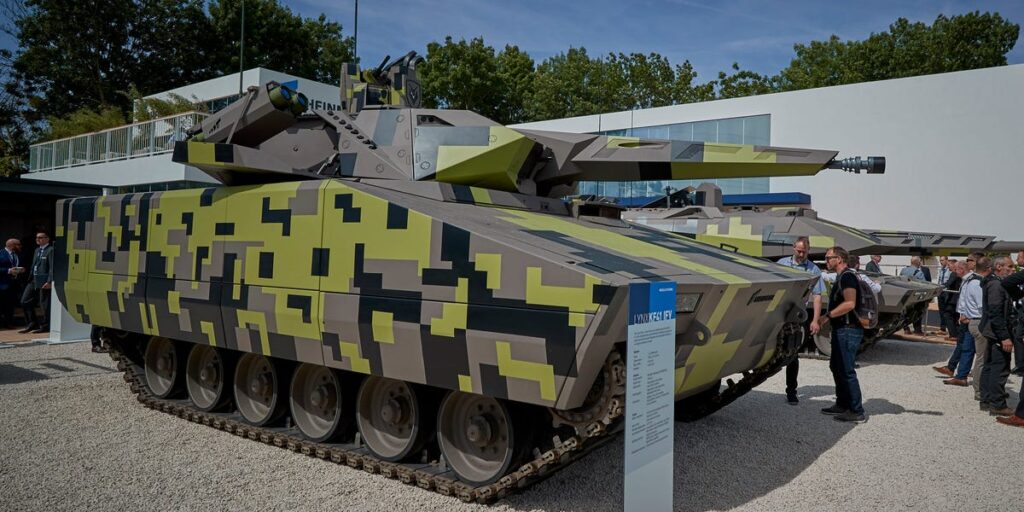Aiding Ukraine in the fight against Russia
Philipp Schulze/picture alliance via Getty Images
Ukrainian forces have suffered heavy losses in their mechanized forces, which include US-made Bradleys and outdated Soviet-era vehicles, heightening the growing need for fighting vehicles like the Lynx against advancing Russian forces.
“Why the Lynx? This is one of the most modern infantry fighting vehicle platforms,” Oleksandr Kamyshin, then the head of Ukraine’s strategic industries, said at the June conference in Berlin. “For our European partners, this is a good opportunity to test it in battle and make it better. And for our soldiers today, we need every additional vehicle that will help them stand at the front.”
The domestic production of Lynx IFVs is also aimed at creating a more self-reliant defense industry in Ukraine while sustaining efforts to maintain and repair its fleet locally.
Rheinmetall isn’t the only defense company setting up operations on Ukrainian soil. American defense contractor AeroVironment partnered with a Ukrainian company to locally manufacture its loitering munition, Switchblade 600.
Ukrainian President Volodymyr Zelenskyy said 30% of the military equipment used by Ukrainian forces was domestically made, including sea drones, howitzers, glide bombs, and even its own missiles.
“The Ukrainian defense industry has been in decline for decades,” Kamyshin said in June. “But today, it is reviving and making a significant contribution to Ukraine’s economic recovery — also thanks to partners like Rheinmetall.”
Zelenskyy said the efforts and support from the US and other European allies “have made us stronger.” But defense experts have criticized Western governments for being too slow to provide essential military aid to Ukraine, forcing the country to become more reliant on its own supply.
President-elect Donald Trump’s second term has also raised international concern about the US’ role in providing assistance to Ukraine. On the campaign trail last year, the former president proposed his intention to cease support to Ukraine and negotiate a peace deal with Russia that would likely cede much of the territory it lost since the war began.
Ahead of his return to the White House, NATO officials are bracing for US support to diminish during his administration, sparking discussions to “Trump-proof” future aid packages to Ukraine.


